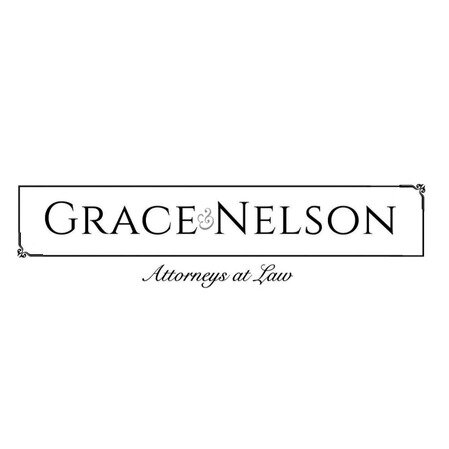Best Real Estate Lawyers in Ecuador
Share your needs with us, get contacted by law firms.
Free. Takes 2 min.
Free Guide to Hiring a Real Estate Lawyer
Or refine your search by selecting a city:
List of the best lawyers in Ecuador
About Real Estate Law in Ecuador
Real estate in Ecuador has gained popularity among investors and expatriates due to the country's diverse landscape, favorable climate, and relatively low cost of living. The country's property market offers opportunities ranging from coastal beachfront properties to Andean mountain retreats. Ecuador's legal framework for real estate is structured to support both domestic and foreign buyers, though it can be complex and may require professional guidance. Understanding local regulations, property rights, and the buying process is crucial for a successful transaction.
Why You May Need a Lawyer
Engaging a lawyer for real estate transactions in Ecuador can provide several benefits. Here are some common situations where legal support is advisable:
- Purchase or Sale of Property: Legal assistance ensures that the transaction is completed properly and that the title is clear.
- Due Diligence: Lawyers can conduct thorough due diligence on the property to confirm no encumbrances or legal issues exist.
- Contract Drafting and Review: Professionals can draft or review contracts to protect your interests and ensure compliance with Ecuadorian laws.
- Property Inheritance: Guidance on inheritance laws to ensure proper transfer of property to heirs.
- Landlord-Tenant Disputes: Resolution of conflicts related to rental agreements, deposits, or property maintenance.
- Litigation: Representation in court for any real estate-related disputes or claims.
Local Laws Overview
Ecuador's real estate laws cover several critical areas:
- Property Rights: Under the Ecuadorian Constitution, foreigners and nationals have the same property rights, but with restrictions in border and security zones.
- Registry: All property transactions must be registered with the local property registry to be legally recognized.
- Taxes and Fees: Understanding transfer taxes, notary fees, and registration costs is essential for budgeting a property purchase.
- Land Use Regulations: Compliance with zoning laws and land use regulations is necessary for intended property use.
- Coastal and Rural Land: Specific laws apply to rural and agricultural land, and foreign ownership can be restricted in these areas.
- Building Regulations: Construction and renovation of buildings must adhere to local building codes and standards.
Frequently Asked Questions
Can foreigners buy real estate in Ecuador?
Yes, foreigners can purchase real estate in Ecuador and enjoy the same rights as Ecuadorian citizens, except in restricted zones along borders.
What is the process for purchasing property in Ecuador?
The process involves negotiating a purchase agreement, conducting due diligence, signing a contract, and registering the transaction with the relevant property registry.
Do I need a lawyer to buy property in Ecuador?
While not mandatory, hiring a lawyer is highly recommended to navigate the legal intricacies and ensure a smooth transaction.
What taxes apply to buying property?
Property purchases may incur a municipal transfer tax (usually around 1% of the property value) and other fees such as notary and registration costs.
How is property ownership verified?
Property ownership is verified through the local property registry. A lawyer can help investigate and confirm that the property title is clean.
Are there restrictions on owning coastal or rural land for foreigners?
Foreigners can own most coastal land with some limitations, especially near naval bases. Rural land purchases might be subject to specific regulations.
What should I consider in a contract for property purchase?
Contracts should clearly define payment terms, property description, contingencies, and any conditions precedent for the sale to proceed.
What happens if there is a dispute over property?
In case of disputes, it is advisable to seek legal counsel to negotiate resolutions or to represent you in court if necessary.
Can property be inherited in Ecuador?
Yes, property can be inherited. Ecuadorian law will generally apply unless specified otherwise in a will. Legal assistance is beneficial to navigate inheritance laws.
What are some common issues with real estate transactions?
Common issues include unclear title, zoning restrictions, property encroachments, and discrepancies in property boundaries. Legal experts can help mitigate these risks.
Additional Resources
Consider the following resources for additional information:
- Superintendencia de Compañías, Valores y Seguros: The regulatory body providing insights into real estate regulations.
- Ministerio de Desarrollo Urbano y Vivienda: Manages urban development and housing policies.
- Local Property Registries: Essential for verifying ownership and transaction records.
- Real Estate Agencies: Engaging with a reputable local agency can provide market insights and assistance.
- Embassies or Consulates: They can offer guidance, particularly for expats dealing with real estate in Ecuador.
Next Steps
If you need legal assistance in real estate, consider the following steps:
- Research: Gather information about the property and transaction process relevant to your situation.
- Consult a Lawyer: Seek a reliable and experienced real estate lawyer who can provide tailored advice and guide you through the legal requirements.
- Engage a Real Estate Agent: Work with a professional who knows the local market and can assist with property selection and negotiations.
- Conduct Due Diligence: Ensure all necessary investigations about the property are complete before proceeding with the purchase.
- Draft and Review Documents: Allow your legal counsel to draft or review all transaction documents to safeguard your interests.
Lawzana helps you find the best lawyers and law firms in Ecuador through a curated and pre-screened list of qualified legal professionals. Our platform offers rankings and detailed profiles of attorneys and law firms, allowing you to compare based on practice areas, including Real Estate, experience, and client feedback.
Each profile includes a description of the firm's areas of practice, client reviews, team members and partners, year of establishment, spoken languages, office locations, contact information, social media presence, and any published articles or resources. Most firms on our platform speak English and are experienced in both local and international legal matters.
Get a quote from top-rated law firms in Ecuador — quickly, securely, and without unnecessary hassle.
Disclaimer:
The information provided on this page is for general informational purposes only and does not constitute legal advice. While we strive to ensure the accuracy and relevance of the content, legal information may change over time, and interpretations of the law can vary. You should always consult with a qualified legal professional for advice specific to your situation.
We disclaim all liability for actions taken or not taken based on the content of this page. If you believe any information is incorrect or outdated, please contact us, and we will review and update it where appropriate.
Browse real estate law firms by service in Ecuador
Ecuador Attorneys in related practice areas.
Browse real estate law firms by city in Ecuador
Refine your search by selecting a city.














